Research Reports
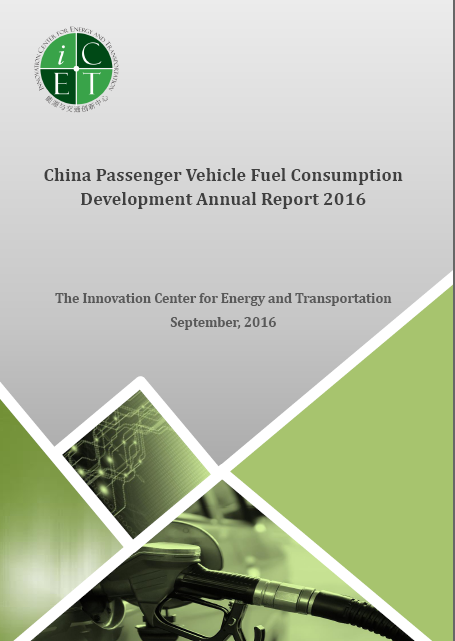
China Passenger Vehicle Fuel Consumption Development Annual Report 2016 (January 2017/ Clean Transportation Program)
iCET "2016 China Passenger Vehicle Fuel Consumption Development Annual Report" – the sixth report of its kind – analyzes the gaps of Phase III and IV of China fuel consumption standard based on China 2015 reported fuel consumption (FC) data and production of each auto manufactures , presents auto manufactures individual FC performance, evaluates New Energy Vehicles (NEVs) contribution to corporate and overall car market performance, and proposes recommendations towards the 2020 target of 5L/100km and translates to CO2 emissions of 167kg/km (from the 2015 target of 6.9L/100km or about CO2 120kg/km).
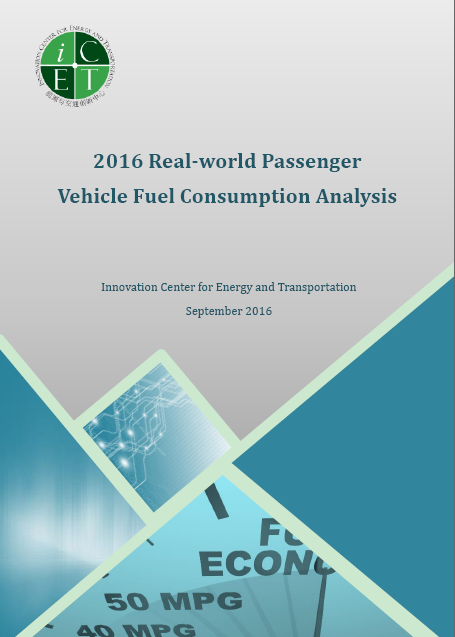
2016 Real-world Passenger Vehicle Fuel Consumption Analysis (September 2016 / Clean Transportation Program)
This study aims to assess the gap between reported and real-world fuel consumption (FC). It therefore uses the reported FC data available on the MIIT’s website and a bottom-up actual FC data collection App, BearOil App which includes nearly 600,000 owners and over 15 million data inputs inserted between 2008 and 2015, covering 16,000 vehicle models in 31 cities in China. By-segment, by-brand, by-model year, and by-transmission FC gaps are analyzed with simple possible reasons explanation. Last but not least, this report further highlights the need for independent and accountable third-party scrutiny of auto standards implementation status
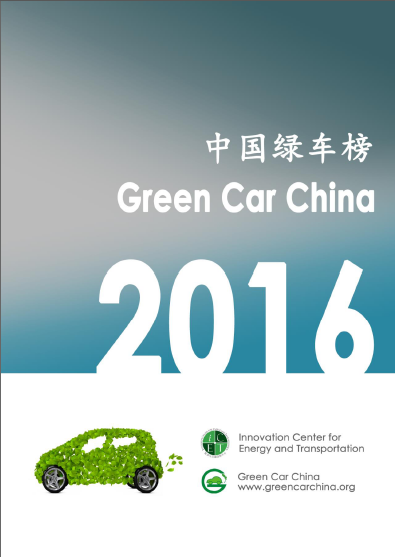
2016 China Green Car Finalists (August 2016 / Clean Transportation Program)
This brochure showed to consumers the Top 10/5 rankings for ten vehicle categories, including Small, Compact, Mid-size, Large, SUV, MPV, Luxury, Sports and PHEV (PHEV was ranked for the first time). Green Score, Blue Score, and GCC Rating were illustrated in the ranking, aiming to encourage consumers to choose vehicle models with less environmental impacts. Green Car China Ranking has been supported by Energy Foundation (financially), UNEP and MEP-VECC (technically) and entered its 7th year since public release.
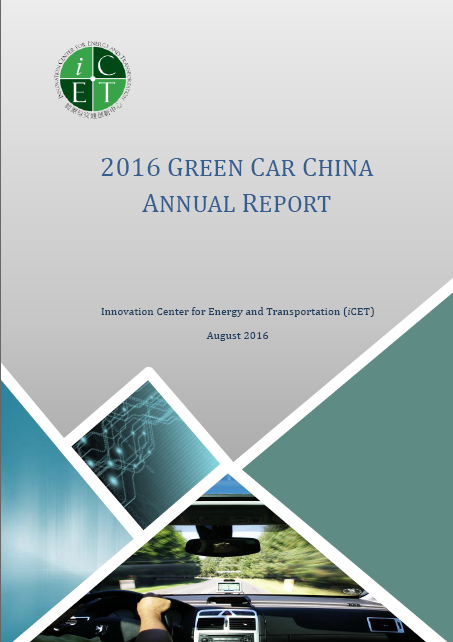
2016 Green Car China Annual Report (August 2016 / Clean Transportation Program)
This year’s Green Car China Annual Report released green rankings for 10 vehicle categories (including plug-in hybrid ranking for the first time), as well as top best-selling models’ ranking. Blue Score was used to evaluate the emission level instead of Smog Index in this report. Additionally, average Green Scores and Blue Scores of the past 3 years were analyzed and compared to show the trend of vehicles’ environmental performance.
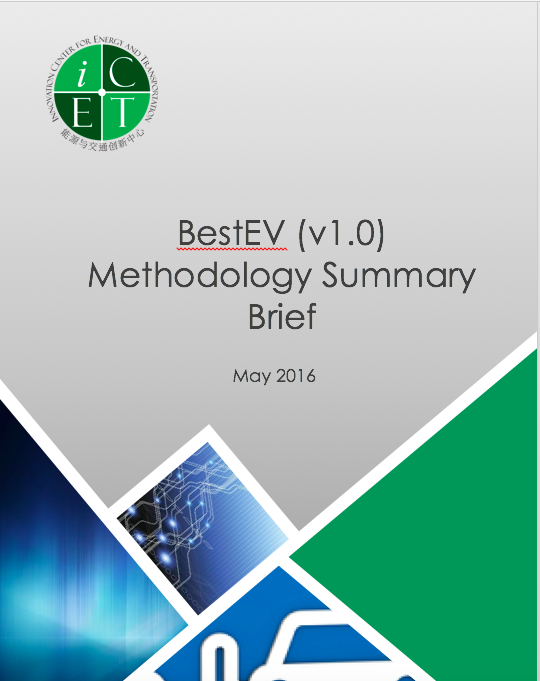
BestEV v1.0 Methodology Summary Brief (May 2016 / Clean Transportation Program)
The BestEV v1.0 methodology summary brief is meant to provide a quick overview of the process and results of each of the BestEV methodology development stage and the final result. The brief also includes the calculation method or arriving at the BestEV v1.0 qualitative and quantitative criteria, as well as an end results divided to vehicle cost ranges.
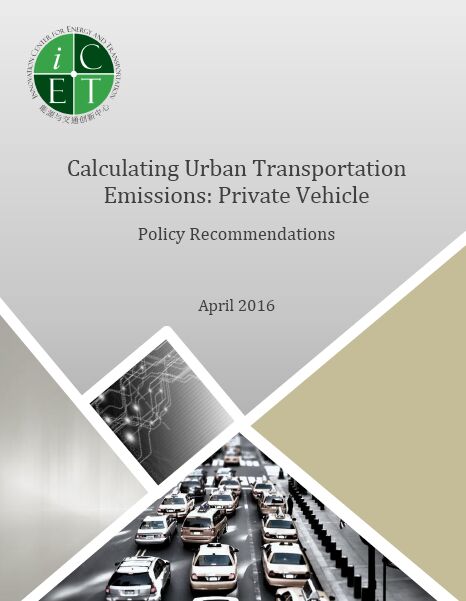
CUTEC (PV) v1.0 Policy Recommendations (April 2016 / Clean Transportation Program)
The China Urban Transportation Emissions Calculator (CUTEC) private vehicles (PV) version 1.0 is the fruit of iCET CTTP year of project development together with E4Tech. While designed to support urban transport decision making through the comparison of various policy impacts on local air quality and carbon emissions, as well as other related effects such as congestion, CUTEC developed included multiple discussions and information exchanges between its developers and supported. These have been collected to comprise the CUTEC policy recommendations report aimed at summarising project lessons and suggested next steps for improving policy-making processes. The CUTEC project was funded by the Rockefeller Brothers Fund, the UK Strategic Posterity Fund, and the Blue Moon Fund.
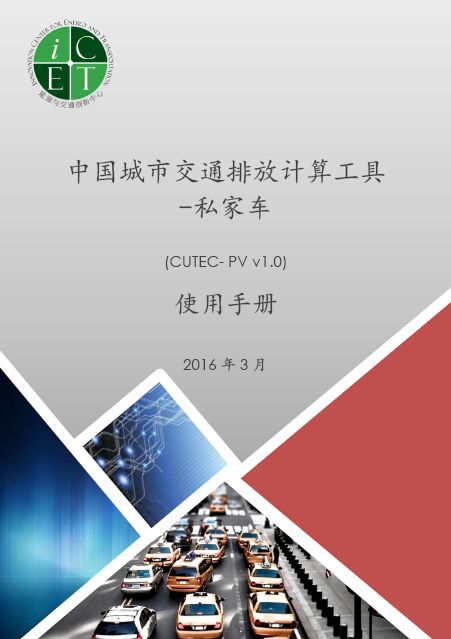
CUTEC (PV) v1.0 Guidebook (April 2016 / Clean Transportation Program)
The China Urban Transportation Emissions Calculator (CUTEC) private vehicles (PV) version 1.0 Guidebook was developed for providing background and support to users of the tool. Meant to support urban transport decision making through the comparison of various policy impacts on local air quality and carbon emissions, as well as other related effects such as congestion, CUTEC is designed as an open-source: it is an Office spreadsheet tool that enables insights into the entire design and calculation processes, it is adjustable to local conditions and requirements, and it is free for use. iCET CTTP team is glad to provide support and training for making the use of the tool easy and valuable; for related inquiries email info@icet.org.cn. The CUTEC project was funded by the Rockefeller Brothers Fund, the UK Strategic Posterity Fund, and the Blue Moon Fund.
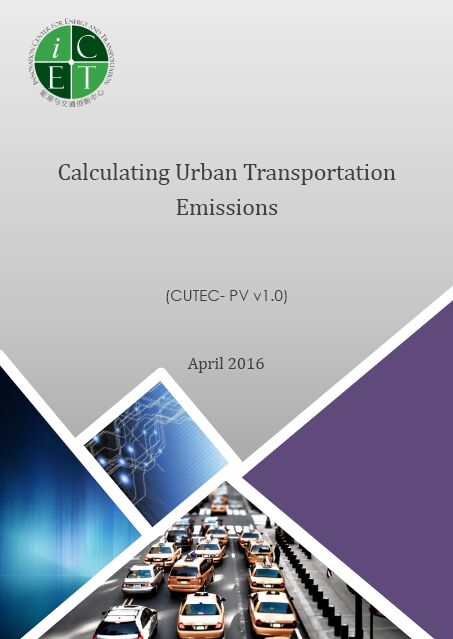
The China Urban Transportation Emissions Calculator (CUTEC) private vehicles (PV) version 1.0 (March 2016/Clean Transportation Program)
The China Urban Transportation Emissions Calculator (CUTEC) private vehicles (PV) version 1.0 is the fruit of iCET CTTP year of project development together with E4Tech. The calculator is meant to support urban transport decision making through the comparison of various policy impacts on local air quality and carbon emissions, as well as other related effects such as congestion. CUTEC is designed to be an open-source: it is an Office spreadsheet tool that enables insights into the entire design and calculation processes, it is adjustable to local conditions and requirements, and it is free for use. The calculator was refined through the support of the Shenzhen Urban Transport Planning Center in providing Shenzhen actual fleet data. Among reviewers and contributors to CUTEC are the Shenzhen Transport Development Research Institute (TDRI), Shenzhen Tsinghua Graduate School, Sun Yet Sen University, the World Resources Institute (WRI) and others. The CUTEC project was funded by the Rockefeller Brothers Fund, the UK Strategic Posterity Fund, and the Blue Moon Fund.
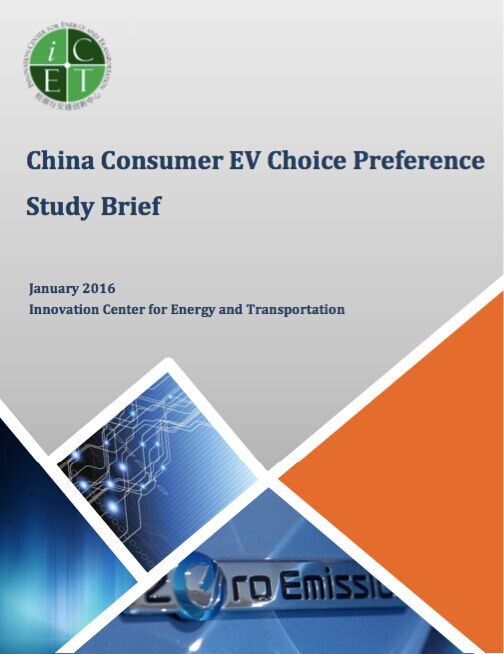
China Consumer EV Choice Preference Study Brief (Feb. 2016/Clean Transportation Program)
China NEV market is set to grow rapidly for internalizing ambitious government goals, yet real market growth requires more than supply-side benefits. In order to ensure that demand expectations and preferences are being met, a better understanding of the average consumer is due. In particular, understanding consumer sensitivity to mileage, parking and brand are assumed to be the key for unlocking EV commercialization bottlenecks: at the policy design level, transport infrastructure development, auto-manufacturing strategy, and third parties involved in the complex NEV ecosystem. In an effort to include the general public in sustainable private vehicle decision-making, iCET have partnered with its former intern and current PhD student from Carnegie Mellon University (CMU), John Helveston, for designing a user friendly yet scientifically robust survey. The survey was distributed utilizing iCET official and its stakeholders’ social media channels (primarily WeChat) and its analysis reaffirmed previous studies and yielded some new insights.
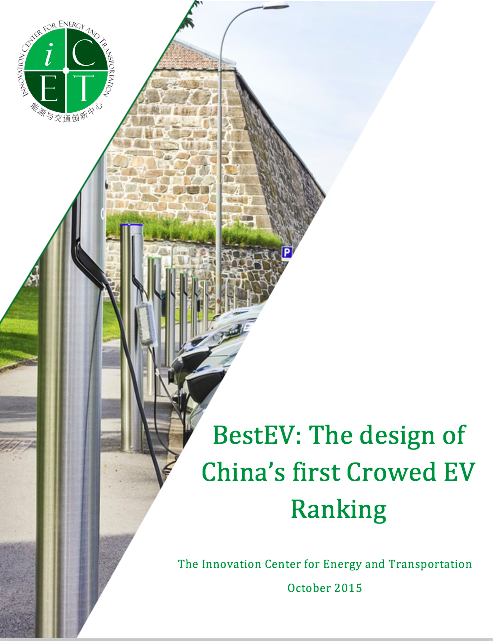
The Design of China's First EV Crowd Ranking Platform: BestEV Methodology Development Report (January 2016/ Clean Transportation Program)
Local and national policymakers have taken steps to increasingly strengthen consumer benefits in order to accelerate NEV commercialisation but despite these efforts, supply and demand of high-quality EVs has remained low. As a step to increase EV performance, BestEV aims to provide the general public and automakers with insights regarding China’s EV market.This report is the first milestone of the BestEV platform:a transparent scientific methodology was developed with its basis in meta-analysis review, then in collaboration with 28 experts through the employment of the Delphi Method,and later finalisedthrough consultation with various experienced stakeholders in a dedicated consensus development workshop.